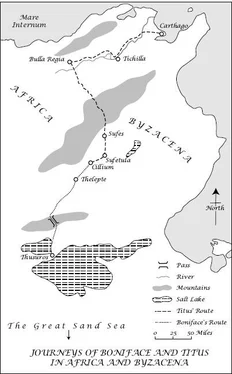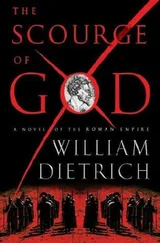Ross Laidlaw - Attila:The Scourge of God
Здесь есть возможность читать онлайн «Ross Laidlaw - Attila:The Scourge of God» весь текст электронной книги совершенно бесплатно (целиком полную версию без сокращений). В некоторых случаях можно слушать аудио, скачать через торрент в формате fb2 и присутствует краткое содержание. Жанр: Исторические приключения, на английском языке. Описание произведения, (предисловие) а так же отзывы посетителей доступны на портале библиотеки ЛибКат.
- Название:Attila:The Scourge of God
- Автор:
- Жанр:
- Год:неизвестен
- ISBN:нет данных
- Рейтинг книги:5 / 5. Голосов: 1
-
Избранное:Добавить в избранное
- Отзывы:
-
Ваша оценка:
- 100
- 1
- 2
- 3
- 4
- 5
Attila:The Scourge of God: краткое содержание, описание и аннотация
Предлагаем к чтению аннотацию, описание, краткое содержание или предисловие (зависит от того, что написал сам автор книги «Attila:The Scourge of God»). Если вы не нашли необходимую информацию о книге — напишите в комментариях, мы постараемся отыскать её.
Attila:The Scourge of God — читать онлайн бесплатно полную книгу (весь текст) целиком
Ниже представлен текст книги, разбитый по страницам. Система сохранения места последней прочитанной страницы, позволяет с удобством читать онлайн бесплатно книгу «Attila:The Scourge of God», без необходимости каждый раз заново искать на чём Вы остановились. Поставьте закладку, и сможете в любой момент перейти на страницу, на которой закончили чтение.
Интервал:
Закладка:
Ross Laidlaw
Attila: The Scourge of God
HISTORICAL NOTE
In AD 376, exactly a hundred years before the end of the Western Roman Empire, an extraordinary thing happened. An entire German nation, the Visigoths, assembled on the banks of the River Danube pleading for permission to cross the river into the Roman Empire. The reason: a terrible race of mounted nomad-warriors, the Huns, had suddenly fallen on them from the east with such ferocity and in such overwhelming numbers that the Goths were forced to seek safety across the Roman frontier. Entry was granted, and all might have been well; the Goths would probably have settled peacefully as workers on the land and recruits for the legions. But exploitation by corrupt Roman 1officials (for example, when reduced to starvation the Goths were given dogmeat in exchange for their sons sold into slavery) provoked the Goths into rebellion. In 378, at Adrianople in Thrace, they destroyed a huge Roman army, killing the Eastern emperor, Valens. (The empire had recently been split into two halves, with capitals at Milan and Constantinople.) This was Rome’s worst disaster since Cannae, where in 216 BC her forces had been massacred by Hannibal.
The danger passed, thanks to firm but diplomatic handling of the Goths by Theodosius I, Rome’s last great soldier-emperor. The empire, apparently strong and secure once more, was briefly re-united at the end of his reign, but when he died in 395 it was divided — this time permanently — between his feeble sons, Honorius (West) and Arcadius (East).
With the strong hand of Theodosius removed, inherent weaknesses showed up, and the West plunged into crisis. The Goths, under their leader Alaric, broke out and proceeded to ravage the Balkans and invade Italy. Stilicho, the West’s brilliant Vandal general, defeated Alaric time and again but always let him escape, perhaps out of reluctance to finish off a fellow German. Then, on the last day of 406, disaster struck. A vast host of German tribesmen — Vandals, Suevi, Burgundians, etc. — crossed the frozen Rhine, then poured across Gaul and into Spain. Distracted by grandiose plans to wrest the Balkans from the Eastern Empire, Stilicho failed to intervene; as a result, he fell from power and was executed. Alaric then re-invaded Italy, and in 410 captured Rome itself, only to die within the year. (The Goths soon withdrew from Italy, taking with them Honorius’ sister Galla Placidia, who was captured when Rome fell; she was eventually sold back to the Romans for half a million measures of wheat.) Denuded of troops by a usurper, Britain was instructed by Honorius to fend for itself against the depredations of Saxons, Picts, and Scots (from Ireland).
At this critical juncture for the West, the situation was stabilized and to some extent reversed by a remarkable Roman general, Constantius. His policy of persuading the German tribes to settle peacefully as federates in the provinces they had invaded had considerable success; so much so that in 421 Honorius appointed him co-emperor as Constantius III, and sanctioned his marriage to Placidia, by whom he had a son, the future Emperor Valentinian III, and a daughter, Honoria, whose scandalous involvement with the Hun king, Attila, very nearly brought the Western Empire to a premature end. (Plans for recovering Britain were indefinitely shelved.)
Unfortunately, Constantius died within months of receiving the purple. But his great work, to try to preserve the empire by forging a state of harmonious co-existence between the Romans and their German ‘guests’ (as the federates were euphemistically termed), was to be carried on by another Roman general with vision, Flavius Aetius. Their task was complicated by a religious problem. Catholic Christianity was now the official religion of the Roman state. The Germans settled within the Empire were also Christians, but of a different brand — Arian. Arianism held that Christ the Son was inferior to God the Father, a doctrine in tune with the Germans’ paternalistic society. In the eyes of Romans this made them heretics, and therefore beyond the pale.
In AD 423 (when this story begins) Honorius died without issue, and this immediately created a power vacuum. The Eastern emperor, Theodosius II, the son of Arcadius, renounced his claim to the Western throne, backing instead the next legitimate heir, Valentinian, the infant son of Constantius III and Galla Placidia. (The empress and her little son were then the guests of Theodosius in Constantinople.) Meanwhile, a usurper, Iohannes, had proclaimed himself emperor at Ravenna, which had become the Western capital. Accompanied by Placidia and Valentinian, an expedition was despatched from Constantinople to depose Iohannes, who appealed for help to Aetius. Anxious to prevent Placidia coming to power as regent for Valentinian — something he saw as potentially disastrous for the West — Aetius agreed to back Iohannes. With a large force raised from among his friends and allies across the Danube, the Huns (among whom he had lived as a hostage when a boy), Aetius set out for Italy. As spring wore towards summer in the fateful year of 425, the two armies converged in a collision course upon Ravenna.
1From AD 212 all free inhabitants of the empire were accounted Romans.
PART I
PROLOGUE
Cursing, Titus Valerius Rufinus slapped at a mosquito which had bitten the back of his neck. Even here, a hundred feet up on the roof of Ravenna’s Basilica Ursiana, Bishop Ursus’ new cathedral, the pests were active. Eastwards, the angry red disc rising above the Mare Adriaticum threatened another day of scorching heat. The towers of the imperial palace suddenly glowed in the early rays, followed by the crenellations of the city walls, the topmost arches of the aqueduct that Emperor Trajan had built three centuries before, and the cupolas of the churches that were everywhere replacing the pagan temples. The banks of mist that always seemed to shroud the place partially shredded away, revealing the great causeway that connected the city to its port of Classis three miles to the south-east and to the sprawling suburb of Caesarea in between. All around stretched a dreary landscape of marshes and lagoons, its monotony broken only by clumps of bog-willow, isolated vineyards, and the glittering line of the Fossa Augusta, the mighty canal joining the city to the River Po.
Soon, twinkling flashes from armour and weapons, threads of smoke from cooking-fires, and the faint blare of trumptes told Titus that the enemy encampment — dispersed throughout the buildings, squares, and smallholdings of Caesarea — was astir. An hour crawled past. Then the enemy force, cavalry from the Eastern Empire, commanded by Aspar, son of the veteran general Ardaburius, began to form up on the causeway. Extending an arm with fist bunched, Titus began to make a rough estimate of numbers: fifty horsemen between two knuckles; ten, twenty, thirty ranks. . The more distant formations merged into a gleaming blur, making an accurate count impossible, but he thought the total could not be less than five thousand, perhaps nearer ten.
Muted by distance to a tinny bray, trumpets sounded. Like a monstrous caterpillar, the vast column began to creep along the causeway towards the city. When they were five or six hundred paces from the walls Titus was able to pick out the various types of cavalry in the van: catafracti armoured head to toe, looking strangely unhuman; clibanarii in hooded chain-mail coats; light cavalry armed with javelins, unprotected save for small round shields and helmets; horse archers, and various intermediate types. All these impressions Titus stored away in his head, using the old Ciceronian trick of ‘memory palaces’: an imagined suite of rooms, each containing a segment of information which a walk through the suite would instantly recall.
Читать дальшеИнтервал:
Закладка:
Похожие книги на «Attila:The Scourge of God»
Представляем Вашему вниманию похожие книги на «Attila:The Scourge of God» списком для выбора. Мы отобрали схожую по названию и смыслу литературу в надежде предоставить читателям больше вариантов отыскать новые, интересные, ещё непрочитанные произведения.
Обсуждение, отзывы о книге «Attila:The Scourge of God» и просто собственные мнения читателей. Оставьте ваши комментарии, напишите, что Вы думаете о произведении, его смысле или главных героях. Укажите что конкретно понравилось, а что нет, и почему Вы так считаете.












